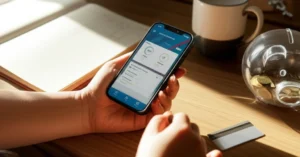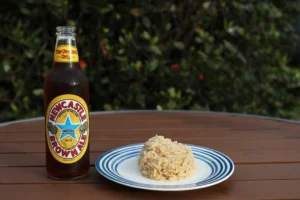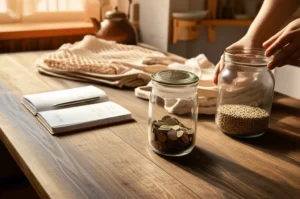Have you ever stopped to think about that daily coffee run… or those quick takeout dinners that just kind of sneak into your weekly habits? Yeah, I’ve totally been there—watching my bank account shrivel and wondering, “Where did all my money go?” But here’s the thing: saving money doesn’t have to be a big, scary overhaul.
Sometimes it’s the tiny tweaks, the little frugal habits to save money, that can really add up. Those small changes that feel just doable—not overwhelming—yet help fatten your savings without living like a monk. So, let’s talk about those everyday wins, sneaky money traps, and simple shifts you can start with, all in a way that feels more like one friend sharing secrets with another.
Where Cash Leaks?
What’s Really Eating Up Your Money?
Here’s a quick story: a while back, I decided to track every single thing I spent money on for a week. Not just bills and groceries, but even that $3 chocolate bar at checkout, the $6 soda here, or the random impulse buy “just because.” Guess what? I uncovered some serious hidden leaks worth almost $200 a month. Crazy, right?
Tracking your spending is one of those fundamental frugal habits to save money. It’s not glamorous, but it works. According to experts, writing down every expense helps you see patterns—and spot where your money’s quietly disappearing. (Trust me, it’s less about guilt and more about awareness.) If you want, apps like Mint or You Need A Budget make this super painless.
Tools to Try
- Simple notebook or bullet journal if you prefer paper
- User-friendly apps that sync your accounts automatically
Is Automating Savings a Lazy Person’s Trick?
It’s not lazy at all—it’s smart. Setting up an automatic transfer to savings right after you get paid means the money disappears before you even notice. (I have a friend who does this with just $20 a week. Six months later, she had an emergency fund she hardly touched.)
This “pay yourself first” mindset is a game changer. You can start tiny—like $5 or $10 per paycheck—and build up. Over time, it’s surprising how fast it grows, and you didn’t have to wrestle with self-control every single payday.
Kitchen Magic
Can Meal Planning Really Save You Cash?
Absolutely. Having a plan for your meals cuts down on spontaneous takeout orders, duplicate grocery buys, and the dreaded fridge full of mystery leftovers. One Reddit user shared how meal planning flipped their food budget upside-down—because they started using what was already in their pantry first. That’s a win because throwing away food is like throwing away money.
Try jotting down weekly meals and shopping with a list. Batch cooking on Sundays to freeze portions can also save time and money—two wins in one.
Frugal Meal Prep Hacks
| Spending Habit | Frugal Alternative | Estimated Monthly Savings |
|---|---|---|
| Eating out weekly | Meal prep and cook at home | $150 |
| Buying pre-cut vegetables | Chop your own | $20–$30 |
If you want something a bit more hardcore, peep these Extreme frugal ways to save money for inspiration—they’re real eye-openers.
Bulk Buying: Smart or Wasteful?
Buying in bulk can seem like a no-brainer—but only if you eat what you buy! There’s no point in snagging giant packs if half ends up expired. Focus on buying staples like rice, beans, or oats in more significant amounts only if you know you’ll go through them.
When you do bulk buy, proper storage is key. Airtight containers keep things fresher longer, helping your food stay edible and your wallet happy.
Living Large, Spending Small
One Car, Many Savings
This might sound wild—go down to one car if you can. Leo Babauta, who’s called himself a cheapskate (and I mean that in a totally positive way), swears by it. Less car = less gas, insurance, maintenance. I chatted with a friend who sold her second car and switched to bike rides or public transit at times. She’s saving close to $300 a month because of it.
Car Cost Comparison
| Vehicle Type | Annual Cost | Why It’s Frugal |
|---|---|---|
| SUV | $5,000+ | Expensive gas & insurance |
| Compact Car | $2,500 | Better mileage, lower cost |
Can Decluttering Your Space Fill Your Wallet?
It sounds strange, but yes! Turning clutter into cash is a sneaky frugal habit to save money. I once sold some barely used clothes and made enough for a week’s groceries. The best part? It’s like giving your space a fresh start, too.
This habit is especially powerful as you approach retirement or big life changes—more so if you check out frugal living at 60. Selling what you don’t use puts money in your pocket and clears decision fatigue.
Quality Over Cheap
Is Buying Cheaper Always Smarter?
Not really. Frugality isn’t about always grabbing the cheapest thing—it’s about prioritizing value. For example, a sturdy pair of shoes or a kitchen knife that lasts longer saves you from buying replacements over and over.
I’m a sucker for a good deal, but my thrifty mom taught me to pick well-made basics that hold up. Sure, they cost more upfront, but in the long haul? Way cheaper.
Investment vs. Impulse Buying
| Item | Cheap Version Lifespan | Quality Version Lifespan | Long-Term Savings |
|---|---|---|---|
| Running Shoes | 6 months | 2+ years | $150/year |
| Kitchen Knife | 1 year | 10+ years | $200+ over time |
Want more helpful ideas? This list of 100 frugal living tips is packed with easy wins.
Mindful Spending Tricks
Is Cash King? Why Going Physical Helps
Did you know paying with cash can actually help you spend less? It’s true. When you physically hand over bills, you feel that pinch more than swiping a card. Buzzfeed readers swear by it for reigning in impulse buys.
Pair this with unsubscribing from endless promo emails—those constant “sales” can be too tempting, even if you don’t need the stuff.
How to Hack Your Spending Temptations
- Use app blockers during shopping hours
- Unsubscribe from sale newsletters
- Set a 24-hour wait before any non-essential purchase
These little nudges make a big difference over time. And for even more quirky strategies, unusual frugal tips can surprise you.
Bringing It All Together
Look, we’ve covered a lot of ground—from the basic but powerful habit of tracking spending, to smart kitchen hacks, to downsizing big expenses like cars, and choosing quality over cheap. There’s no one-size-fits-all here. The trick is picking a couple of these frugal habits to save money that click with you.
When I hit a rough patch with debt, these small shifts gave me control again. I automate savings, meal plan, and keep my shopping mindful. It doesn’t feel like punishment—it feels like freedom. You can do it too.
Take a look at some of these helpful resources: Extreme frugal ways to save money, 100 frugal living tips, and frugal living at 60 for ideas that fit wherever you’re at in life.
What habit will you try first? Track one spend, cook a meal at home, or maybe even sell something you don’t use? Drop a line, let’s keep this convo going. Small steps, big savings ahead.













